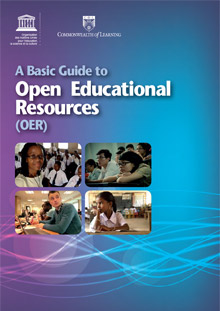
The UNESCO-UNEVOC International Centre: Who We Are | What We Do | Working With Us | Get in Touch
The UNEVOC Network: Learn About the Network | UNEVOC Network Directory
For Members: UNEVOC Centre Dashboard
Thematic Areas: Inclusion and Youth | Digital Transformation | Private Sector Engagement | SDGs and Greening TVET
Our Key Programmes & Projects: BILT: Bridging Innovation and Learning in TVET | Building TVET resilience | TVET Leadership Programme | WYSD: World Youth Skills Day
Past Activities: COVID-19 response | i-hubs project | TVET Global Forums | Virtual Conferences | YEM Knowledge Portal
Our Services & Resources: Publications | TVET Forum | TVET Country Profiles | TVETipedia Glossary | Innovative and Promising Practices | Toolkits for TVET Providers | Entrepreneurial Learning Guide
Events: Major TVET Events | UNEVOC Network News

| Author/s: | Neil Butcher, Asha Kanwar (COL), Stamenka Uvalic-Trumbic (UNESCO), eds. |
| Publisher/s: | UNESCO and Commonwealth of Learning |
| Published: | 2011, 2015 in France |
| Licence: | CC BY |
| ISBN online: | 978-1-894975-41-4 |
This Guide to OER comprises three sections. The first – a summary of the key issues – is presented in the form of a set of ‘Frequently Asked Questions’. Its purpose is to provide readers with a quick and user-friendly introduction to Open Educational Resources (OER) and some of the key issues to think about when exploring how to use OER most effectively. The second section is a more comprehensive analysis of these issues, presented in the form of a traditional research paper. For those who have a deeper interest in OER, this section will assist with making the case for OER more substantively. The third section is a set of appendices, containing more detailed information about specific areas of relevance to OER. These are aimed at people who are looking for substantive information regarding a specific area of interest.